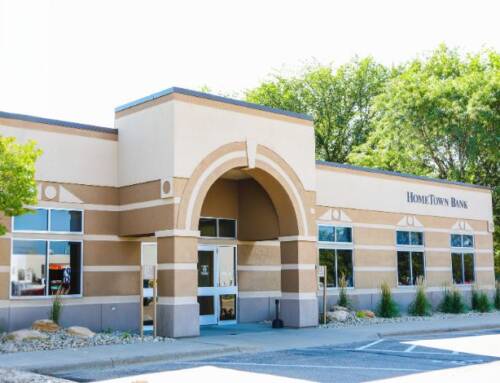Whether you’re currently working on building a house, hope to do so in the future, or just want to expand your knowledge, it can be helpful to familiarize yourself with basic residential construction loan information. Luckily, you’re in the right place to do just that.
Here are some responses to our clients’ most commonly asked questions:
What are residential construction loans?
Residential construction loans are short-term loans that customers use when they’re looking to either build a new home or complete a major remodel on an existing home.
How do they work? What’s the process like?
To obtain a construction loan, contact your favorite community bank and meet with your banker. Then, select a contractor that will provide a bid on the estimated cost of the project. From there, the bank, borrower, contractor, and title company work together to complete the project while staying within the budget. Throughout the process, all parties address any changes to the estimated project cost, working to remain within the original budget or making adjustments if plans change.
When the construction loan is taken out, borrowers bring their out-of-pocket down payment, which is used first to pay contractors. After that, the loan covers the remaining costs, and borrowers make interest-only payments until the project is complete. When you have a good lender and contractor, obtaining a construction loan is simple. Good communication between all parties is key to a successful project.
Should I meet with the lender or the contractor first?
We recommend always meeting with your lender before your contractor so you can determine your budget and can plan the build with your contractor accordingly. The lender can give you a high-level overview of the process and ensure you are well-informed. This benefits the contractor because they will be meeting with clients who have a plan in place and are knowledgeable about financing their project.
What is the difference between a construction loan and a mortgage?
Construction loans are short-term and require interest-only payments, while mortgage loans are long-term and require both principal and interest payments from the start. Typically, borrowers refinance construction loans into traditional mortgages after the construction project is finished.
How much is an ideal amount to put down on a construction loan?
Regardless of the size of your loan, we always recommend that you put down at least 25% right away. This allows for wiggle room with permanent financing and will benefit you in the long run.
How long is a construction loan good for?
Construction loans are short-term loans, so in most cases, they’re good for between 12 and 24 months.
What are the advantages of a construction loan?
For contractors, construction loans provide a guarantee that the necessary funds will be available to complete the project, making them feel more secure. For homeowners, construction loans ensure they have a team of people to work through the process with them, and these loans allow them to retain their cash for emergencies. Cash can always be used to pay down the loan once the project is completed, which can lower their monthly mortgage payments.
Now what?
If you’re considering building a new home or remodeling an already-existing property in the upcoming year, now is the best time to explore your options. Our experts are eager to share their expertise to help you make your dream home a reality. Contact us today to get started!






